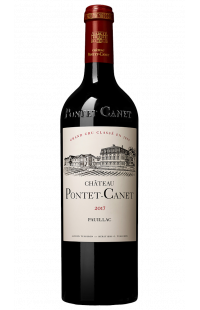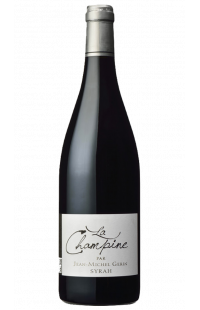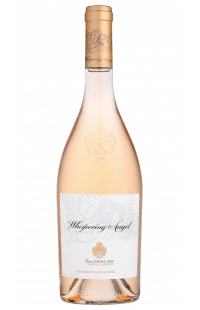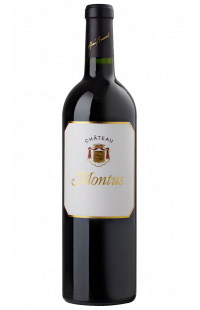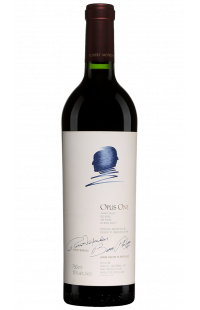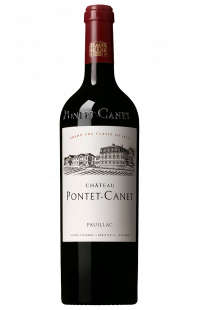- Menu
- All our wines
- Bordeaux
-
Rhône
-
Burgundy
-
Rosés Wines
-
Champagne
- France
-
World
- PRIMEURS
- ORGANIC WINES
Vins de Pays des Pyrénées
There are 4 products.
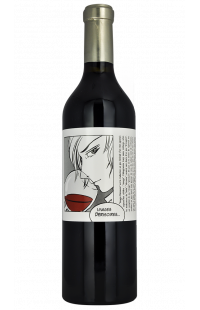
Available in
- Bottle (75cl)
- 24.00€ / bottleTASTING NOTES
Specifications
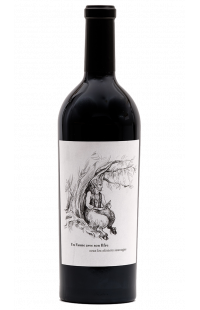
CLOS DES FEES - "Un faune avec son fifre sous les oliviers" 2017
Languedoc - Vins de Pays des Pyrénées - Red Wine -Available in
- Bottle (75cl)
- 35.00€ / bottleTASTING NOTES
Specifications
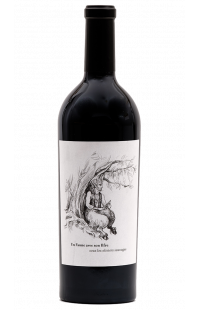
CLOS DES FEES - "Un faune avec son fifre sous les oliviers" 2019
Languedoc - Vins de Pays des Pyrénées - Red Wine -Available in
- Bottle (75cl)
- 35.00€ / bottleTASTING NOTES
Specifications
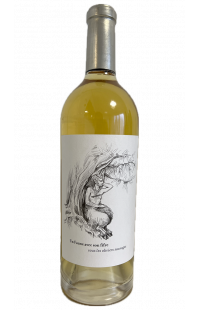
CLOS DES FEES - "Un faune avec son fifre sous les oliviers" 2016 Blanc
Languedoc - Vins de Pays des Pyrénées - White Wine -Available in
- Bottle (75cl)
- 70.00€ / bottleTASTING NOTES
Specifications
Uncovering the Secrets of Vin de Pays des Pyrénées: A Complete Guide for Connoisseurs
Learn all about Vin de Pays des Pyrénées, a PGI wine with a rich history and vibrant flavors, produced in the unique setting of the Pyrénées-Orientales. Discover grape varieties, terroirs, climate, and more in this comprehensive guide.
More than just a favorite for hikers and nature lovers, the stunning Pyrénées region is also home to an exceptional wine terroir. Among its treasures is the Vin de Pays des Pyrénées, a Protected Geographical Indication (PGI) wine that reflects the richness and diversity of the area. Established in 2009, this appellation highlights the characteristics of a region marked by both tradition and innovation. In this article, we’ll dive deep into what makes these wines unique, covering everything from their history, terroir, grape varieties, and more.
What is Vin de Pays des Pyrénées?
Definition of the PGI
Vin de Pays des Pyrénées is a wine appellation in the category of Protected Geographical Indication (PGI), ensuring that the wines meet quality standards and originate from a specific geographical area. Created in 2009, the PGI "Vin de Pays des Pyrénées" encompasses wines produced in the Pyrénées-Orientales, a region in southern France that borders Spain. The region boasts an exceptional terroir and a climate favorable to viticulture.
History of the Appellation Since 2009
The "Vin de Pays des Pyrénées" appellation was introduced in 2009, uniting multiple wine producers in the area under one label to create a strong identity while respecting the diversity of local terroirs and grape varieties. Over the years, the appellation has gained popularity thanks to the dedication of local winemakers who have preserved the quality and authenticity of their wines.
Other Vin de Pays Wines in the Pyrénées-Orientales
Vin de Pays d'Oc
Vin de Pays d'Oc is a regional appellation covering a large production area in southern France, including the Pyrénées-Orientales. Known for its wide variety of wines—from powerful reds to aromatic whites—it shares the Mediterranean climate with Vin de Pays des Pyrénées, which lends it similar characteristics.
Vin de Pays des Côtes Catalanes
Another noteworthy wine from the area, Vin de Pays des Côtes Catalanes, benefits from its proximity to the Mediterranean Sea. This wine reflects a maritime influence that gives it fresh, mineral qualities, often produced from local varieties like Grenache and Carignan.
Vin de Pays des Côtes Vermeilles
Produced in a smaller zone on steep slopes descending toward the sea, Vin de Pays des Côtes Vermeilles often comes from old vines. These wines are known for their strength and complexity, featuring spicy notes and well-structured tannins.
The Unique Terroir of the Pyrénées-Orientales
Geography and Climate
The Pyrénées-Orientales is located south of the Aude department in the Roussillon region. This mountainous area boasts exceptional geological diversity, ranging from granite to schist and alluvial soils. This range of soils adds unique richness to the terroir, making it suitable for a variety of grape varieties.
Mediterranean Climate Influence
The Mediterranean climate in the Pyrénées-Orientales features hot, dry summers and mild winters. This climate, coupled with abundant sunshine, encourages optimal grape ripening. Low rainfall reduces the risk of vine diseases, allowing concentrated aromas to develop in the grapes.
The Role of the Tramontane Wind
The Tramontane, a cold and dry northwest wind, plays an important role in the region’s viticulture. It helps keep vines healthy by reducing humidity and mitigating the risk of mold. Additionally, it cools the hot summer temperatures, allowing grapes to ripen slowly and develop complex aromas.
Grape Varieties of Vin de Pays des Pyrénées
Red and Rosé Varieties
The red and rosé wines of Vin de Pays des Pyrénées primarily feature Mediterranean grapes. Grenache, Syrah, Mourvèdre, Cinsault, and Carignan dominate. Grenache brings red fruit and garrigue aromas, Syrah adds spice and structure, and Mourvèdre contributes depth and black fruit notes.
White Varieties
White wines use varieties like Chardonnay, Grenache Blanc, Muscat, and Viognier. Chardonnay is valued for its versatility, offering tropical and buttery notes. Grenache Blanc produces more structured wines, often with floral and mineral hints, while Muscat is known for its aromatic sweetness, and Viognier adds peach and apricot aromas.
Winemaking Techniques
Tradition Meets Modernity
Winemaking in the Pyrénées-Orientales blends tradition and modernity. Ancient winemaking techniques are preserved, with a focus on expressing terroir. However, local winemakers also use modern technologies, like temperature-controlled fermentation and stainless steel tanks, to enhance wine quality.
Specific Techniques of the Pyrénées
Some winemaking methods are unique to the region. Carbonic maceration, often used with Carignan, produces fruity and smooth wines. Oak barrel aging is also common for reds, imparting vanilla and spice notes and refining tannins.
Tasting Profile of Vin de Pays des Pyrénées Wines
Characteristics of Red Wines
Vin de Pays des Pyrénées reds are known for their intense aroma and tannic structure. They feature ripe red fruit notes, like cherry and raspberry, accompanied by spices and garrigue hints. On the palate, these wines are often full-bodied with good length and well-integrated tannins.
Characteristics of White Wines
The whites are fresh and aromatic, with white fruit aromas like peach and pear, along with floral and mineral notes. They have a crisp acidity that gives them a refreshing quality, balanced and harmonious.
Unique Qualities of Rosés
The rosés are appreciated for their freshness and vivacity. They feature red fruit aromas, such as strawberry and raspberry, sometimes with citrus notes. On the palate, they are light and refreshing—perfect for summer dishes or on their own.
Outstanding Vintages
Exceptional Vintages
Some years stand out for Vin de Pays des Pyrénées due to favorable climatic conditions that yield exceptional vintages. These years allow wines to develop more complex aromas and a greater concentration, often sought after by wine enthusiasts for their superior quality.
How to Choose a Good Vintage
When selecting a good vintage, look into the year’s weather conditions. Years with optimal sunlight and moderate rainfall are generally the best. Tasting the wine before purchasing, if possible, is also recommended to ensure it meets your taste and quality expectations.
Where and How to Taste Vin de Pays des Pyrénées
Top Wineries to Visit
The Pyrénées-Orientales is home to numerous wineries where you can taste Vin de Pays des Pyrénées. Some wineries offer guided tours, allowing you to discover winemaking processes and learn about the region’s history and terroir. The eastern slopes of the Pyrénées have some of the most reputable wineries, where winemakers are often available to share their passion and knowledge.
Food and Wine Pairings
Vin de Pays des Pyrénées pairs wonderfully with Mediterranean cuisine. Reds go well with grilled meats, stews, and aged cheeses. Whites, with their refreshing qualities, pair nicely with grilled fish, seafood, or composed salads. Rosés are ideal for appetizers or with light dishes like tapas.
Local Culture's Impact on Wine
Influence of Roussillon Traditions
Vin de Pays des Pyrénées wines are deeply rooted in the local culture of the Pyrénées-Orientales. Roussillon traditions, combining Catalan and French influences, are reflected in the production of these wines. Wine festivals, gastronomic fairs, and local markets are excellent opportunities to experience and enjoy these wines in their cultural context.
Wine Festivals and Events
Numerous wine-related events are held throughout the year. The harvest season, for example, is celebrated with festivals attracting both locals and tourists, offering a chance to taste new vintages and meet winemakers. The Fête des Vendanges in Banyuls-sur-Mer is one of the best-known festivals celebrating local wines.
The Economic Importance of Wine in the Pyrénées-Orientales
Role in the Local Economy
Viticulture is essential to the economy of the Pyrénées-Orientales. Vin de Pays des Pyrénées boosts the region's reputation and draws many visitors, supporting tourism. Additionally, wine production offers local employment opportunities in vineyards, cellars, and the wine trade.
Challenges in Regional Viticulture
Winemakers in the Pyrénées-Orientales face challenges, including climate change, which affects crop quality and quantity. Adapting cultivation and winemaking techniques is vital to maintaining production. Furthermore, international competition drives winemakers to innovate and distinguish their products through quality.
Choosing a Vin de Pays des Pyrénées: Why It's Worth It
Quality and Diversity
Vin de Pays des Pyrénées is synonymous with quality and diversity. Thanks to its rich terroir and variety of grapes, these wines offer a range of aromas and flavors that will satisfy discerning palates. Whether you prefer red, white, or rosé wines, this appellation offers products that balance tradition with modernity.
Value for Money
Despite their quality, Vin de Pays des Pyrénées wines remain reasonably priced. This PGI offers excellent value for money, making it an attractive option for those looking to explore characterful wines without breaking the bank. They are also a great choice for pairing with various dishes, from simple to more elaborate.
Frequently Asked Questions About Vin de Pays des Pyrénées
What’s the difference between PGI and AOC?
Protected Geographical Indication (PGI) and Appellation d'Origine Contrôlée (AOC) are quality labels that guarantee product origin. PGI is less restrictive, allowing more diversity in grape varieties and viticulture practices, whereas AOC enforces strict rules on varieties, yields, and production methods.
Where to buy Vin de Pays des Pyrénées?
You can purchase Vin de Pays des Pyrénées directly from producers in the Pyrénées-Orientales, at wine cooperatives, or online on sites specializing in French wines. Some fine grocery stores and wine shops in France and abroad also carry it.
How to store wine from this appellation?
Store Vin de Pays des Pyrénées in a cool, dark place at a stable temperature of around 12-14°C (54-57°F). Keep the bottle horizontal so the cork remains moist and airtight. Reds can age for several years, while whites and rosés are best enjoyed young for freshness.
What are the emblematic grape varieties of this PGI?
The emblematic varieties for Vin de Pays des Pyrénées include Grenache, Syrah, Mourvèdre, and Carignan for reds, as well as Chardonnay, Grenache Blanc, Muscat, and Viognier for whites. These grapes are well-suited to the Mediterranean climate and contribute to the wines' aromatic diversity.
Can you visit vineyards in the Pyrénées-Orientales?
Yes, many vineyards in the Pyrénées-Orientales offer guided tours where visitors can explore the vines, cellars, and taste wines produced on-site. These visits provide an excellent opportunity to learn more about local viticulture and purchase wines directly from the source.
How to recognize a good Vin de Pays des Pyrénées?
Look for balance between aromas, structure, and length on the palate. A good wine from this appellation will showcase the terroir, with complex aromas and well-integrated tannins in reds. Whites and rosés should offer freshness and liveliness, with well-defined aromas.
Conclusion
Vin de Pays des Pyrénées is a true treasure of southern France, deserving of discovery and enjoyment. With its diverse grape varieties and unique terroir, it offers a rich and authentic tasting experience. Whether you are a seasoned wine lover or simply curious, these wines will charm you with their quality and character. Don't hesitate to explore this appellation, taste its different wines, and share them with friends and family in moments of conviviality.
